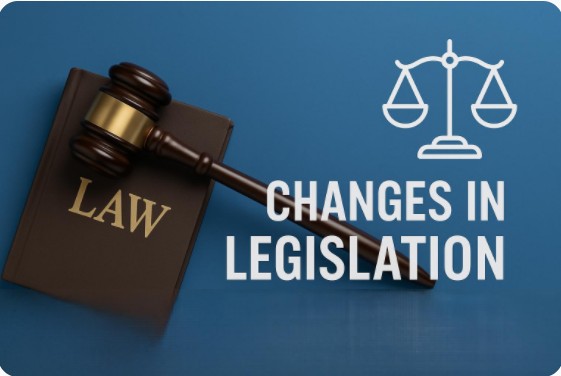Proposed changes to the Holidays Act

Today brings two major announcements that will impact employers across the commercial cleaning industry. From long-awaited reforms to the Holidays Act to new residence pathways under the Skilled Migrant Category visa, BSCNZ is closely monitoring both developments to ensure members are informed, supported, and well-prepared for what’s ahead.
Holidays Act Reform: What It Means for Commercial Cleaning Employers
The Government has confirmed it will repeal and replace the Holidays Act 2003 with a new Employment Leave Act, aiming to simplify leave entitlements and improve compliance across all sectors.
Key Changes Coming:
- Leave accrual based on hours worked – Annual and sick leave will accrue proportionally to hours worked, making entitlements clearer for part-time and variable-hour workers.
- Sick leave pro-rated – Part-time staff will receive sick leave based on actual hours worked, addressing long-standing equity concerns.
- Casual workers – Will receive a 12.5% leave compensation for each hour worked, replacing the current 8% holiday pay model.
- Parental leave returnees – Will no longer be penalised with reduced annual leave pay.
- Bereavement and family violence leave – Will be available from day one of employment.
- Annual leave cash-up – Employees can request to cash up 25% of their leave balance annually (currently limited to one week).
- Mandatory pay statements – Employers must provide itemised leave and pay breakdowns each pay period.
Implications for Commercial Cleaning Employers:
- Payroll systems will need updating to handle hours-based accrual and new leave types.
- Casual and part-time staff management will require closer tracking of hours to ensure accurate entitlements.
- Cost implications – The 12.5% leave compensation for casuals and additional leave entitlements may increase payroll costs.
- Compliance risk reduction – The new law aims to eliminate the complexity that has led to widespread non-compliance and costly remediation.
Timeline:
- The new law is expected to pass in 2025.
- Most sectors (including cleaning) will transition to the new system two years after enactment—likely in 2027.
- Schools will have a longer transition period due to payroll system constraints.
What Stands Out for Our Industry
The proposed 12.5% leave compensation for casual workers stands out as a significant concern for the commercial cleaning sector. This change could have notable financial and operational impacts for employers who rely heavily on casual labour. BSCNZ will be seeking further detail on this provision to understand its full implications for our members.
Another key consideration is the impact on payroll providers. With so many different payroll systems in use across the industry, it remains unclear who will bear the brunt of the cost and effort required to update these systems to comply with the new legislation.
Finally, the exact timing of when these changes will take effect and how members will navigate the transition from the current legislation to the new framework are still to be clarified. BSCNZ will be here to assist members through every step of the process and will continue to keep you updated as more information becomes available.
Skilled Migrant Category Visa Changes: What Employers Need to Know
On 23 September, the Government announced significant changes to the Skilled Migrant Category (SMC) Resident Visa, aimed at helping employers retain skilled workers and supporting long-term economic growth.
New Residence Pathways Introduced:
- Skilled Work Experience Pathway – For migrants in ANZSCO skill level 1–3 roles with 5+ years of relevant experience, including 2 years in New Zealand earning at least 1.1x the median wage.
- Trades and Technician Pathway – For migrants in specified trades or technician roles with a Level 4+ qualification and 4+ years of post-qualification experience, including 18 months in NZ paid at or above the median wage.
These pathways are designed to better reflect the value of practical skills and the contribution of migrants to New Zealand’s workforce.
Other Key Changes:
- Increased points for NZ university-level qualifications to support international graduates transitioning to residence.
- Reduced NZ work experience requirements – Most pathways now require 2 years instead of 3.
- No need for increased wage rates when applying for residence—migrants must simply maintain the median wage throughout their qualifying period.
Current Median Wage:
Timing:
These changes will come into effect in mid-2026, with more detailed guidance to be released closer to implementation.
Implications for the Commercial Cleaning Sector
While these changes may not directly impact all BSCNZ members, they could open new pathways for skilled cleaning supervisors, technicians, and tradespeople—particularly those with formal qualifications and consistent NZ work experience. BSCNZ will continue to monitor how these immigration settings evolve and what they mean for workforce planning, recruitment, and retention in our industry. For full details, visit Immigration NZ’s announcement. [Labour mar...| Stats NZ]
There are many points to ponder with these announced changes, and BSCNZ will continue to monitor developments closely and advocate for our industry’s interests.
